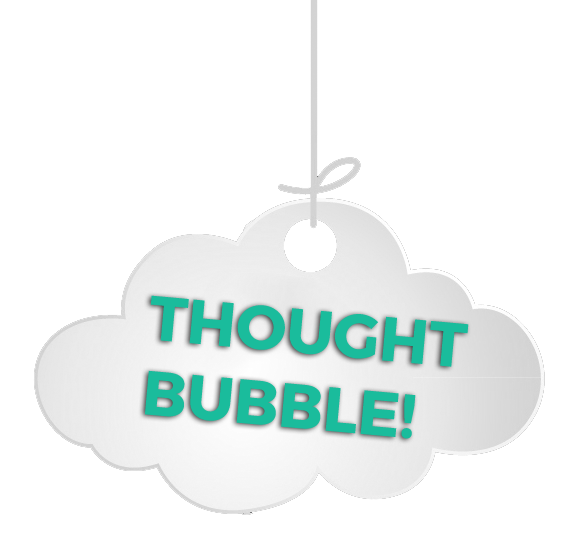A new week, a new ThoughtBubble! This time the  Author is our colleague Simona!
Author is our colleague Simona!
How to be more green…only for woman.
When I started to attend this course I start to become more and more aware about some topics and also wondered how I could be more green in practical aspects. I used to be convinced that little gestures were enough, for example to differentiate waste properly, save energy when possible (for instance turn off the light, reduce the use of washing machine) and so on, but I was not satisfied anymore, so I start to surf on internet to looking for what I could do.
I found an article concerning a problem typical of woman in the world…the period!
Before explaining in detail what the article was about, let me do just a little consideration: a woman usually has 40 years of fertility in her life, which means almost 480 menstrual cycles, on average 2400 days of period. With a simple multiplication you can easily estimate that a woman uses 4800 tampon or sanitary napkin. This products have a big impact on the environment, not only because they can not be recycled but also for their packaging.
The two possible sustainable solution (what I had found on internet) are washable pads (but I do not prefer this option) or a menstrual cup.
With the second one, I discover a new word. I heard about it few years ago but I didn’t give it much attention. For women and especially men who do not know what I am talking about, menstrual cup is, like the name suggest, a cup that concentrates the bloody flow. It is made with medical silicone so it is hypoallergenic and it is washable and usable for 10 years!
It seems strange that this valid alternative is on sales at least since 2007 but it is so unknown (likely for the big interests behind the disposable tampon market).
It has not got any collateral effects, you can do any kind of sports with it (water sports included), it is very piratical, cheap (it costs around 30 euros) but above all it is eco-friendly!
There are many products and methods which are in the market but are not known. Wether it is because a reusable product is not in anyone’s interest in the economic market or because people are just not well informed I don’t know. Sharing what we find out on how to be more sustainable should be everyone’s duty, so here you have my contribution.
Big Thumbs Up to Simona Colaizzi for this thoughts!!!


